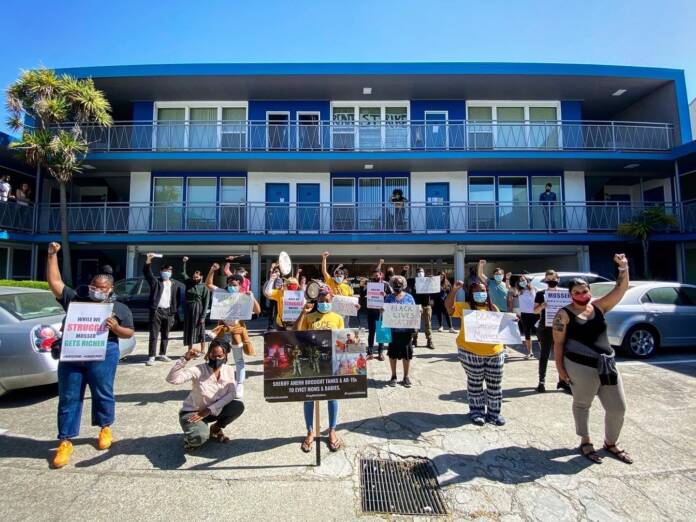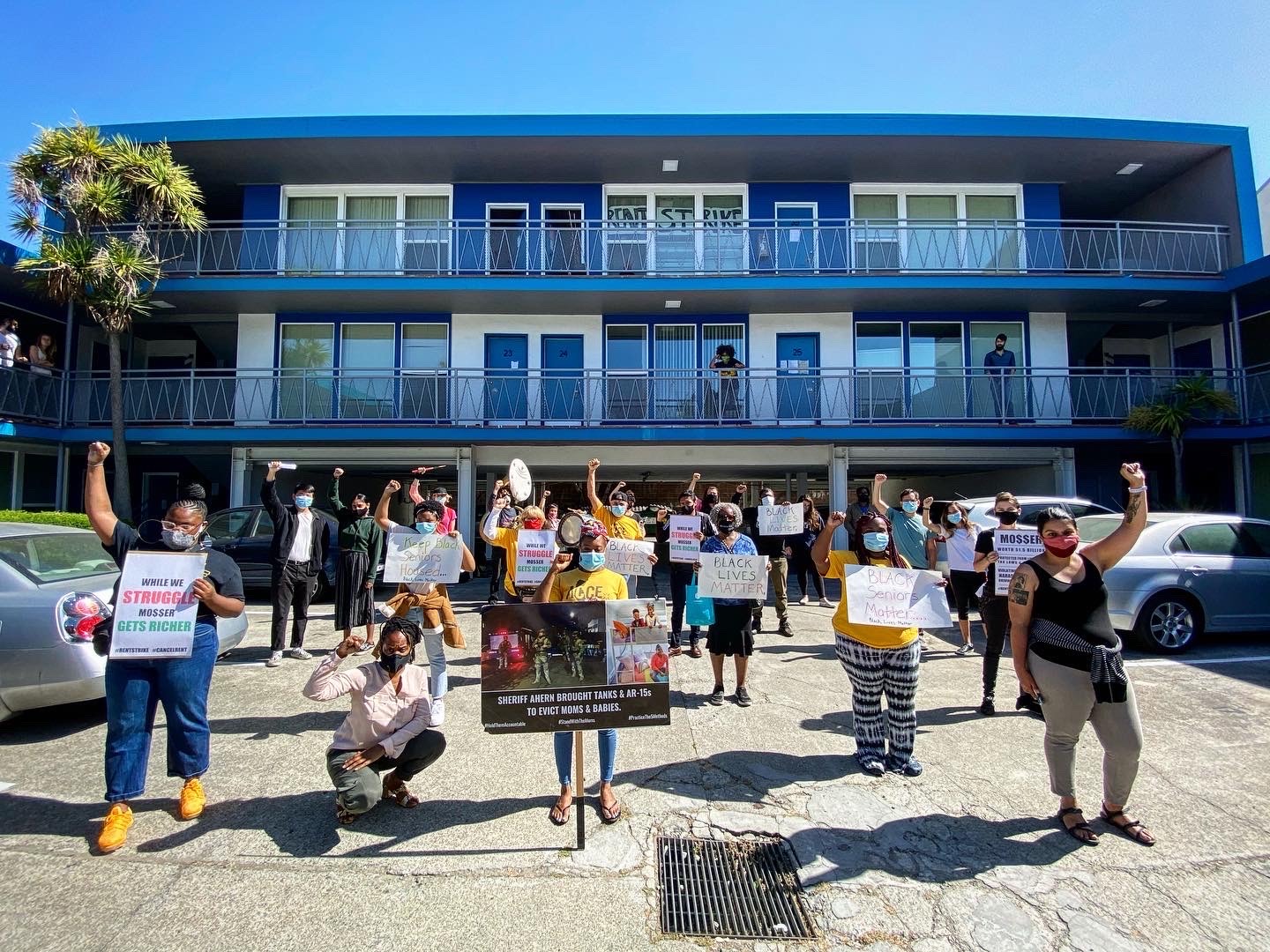
It was a musical morning on Thursday at 444 28th Street in West Oakland where tenants, community organizers from the ACCE Institute and the Black Housing Union, and the Brass Liberation Orchestra, a band which performs at protests and rallies, held a rally in front of the apartment building.
The building’s landlord since 2018, Mosser Capital, has sent multiple notices saying that investors would be coming to inspect the 34 apartments, and tenants sought to prevent potential speculators from entering the apartments, which they say is a hazardous practice during the COVID-19 pandemic.

Sabeena Shah, who has lived at the 28th Street building since 2012, said that having investors come to inspect their apartments poses an especially high risk to the tenants’ safety at that building, as more than half living there are seniors and roughly one-third have pre-existing health conditions.
On the notices that tenants received, Mosser Capital said that they were legally entitled to perform inspections of their units under California Civil Code Section 1954, but Shah said she believes that their inspections conflict with the Alameda County health order.
“With the shelter-in-place order and the coronavirus state of emergency in our county, landlords have been asked [by Alameda County] to avoid non-emergency inspections or entering of tenants’ units,” said Shah.
Mosser Capital failed to show however, as they were apparently tipped off about the demonstration.
Mosser Capital invests in, acquires, and operates “value-add rent-stabilized urban workforce housing,” and claims to “invest in emerging neighborhoods” and “generate meaningful rent growth.”
Essentially, this translates to purchasing affordable housing units and flipping them into market-rate or higher housing, according to Shah. These sorts of inspections may be conducted to assess how risky of an investment a given apartment building is and assess its value, according to O’Connor and Associates, the largest property tax consulting firm in the United States.
Ever since Mosser Capital bought their building two years ago, residents living at 444 28th Street in West Oakland have had their share of issues with the $1.5 billion landlord, which owns roughly 3,400 units in the Bay Area and Los Angeles, including nearly two dozen properties in West Oakland.
In addition to frequent inspections of their units by investors, six total since Mosser took ownership of the building, there have been problems with black mold and water heater failures. Shah also told me that new tenants pay two to three times more for rent than she does and get charged extra for utilities like water and trash disposal, which are included in the rent under the lease agreements for Shah and other long-term tenants. Shah pays roughly $1200 a month, 20 percent more than she did three years ago.
Organizers took issue with the fact that Mosser would not delay investor speculation on a building filled with seniors during a pandemic, especially since Mosser has received a PPP loan between $2.5 million and $5 million.
“What these corporations are doing is evil,” said Carol Fife, Oakland director of the Alliance of Californians for Community Empowerment (ACCE) Institute, which organizes and advocates for low-income communities of color.
Fife said that Mosser’s allowance of investor speculation at this time is just one part of broader gentrification happening around West Oakland, with new developments being predominately market rate or higher.
“There are new developments that are popping up all along this corridor, and they’re all luxury developments. The city [Oakland] has met 200 percent of their market rate development goals and maybe 23 percent of their affordable housing goals,” said Fife.
Due to the economic hardship brought about by the pandemic, tenants at the 28th Street building have been on a rent strike since April. Shah is also calling on more tenants to join the Mosser Tenants’ Union, which she believes has been successful in defending their tenant’s rights, pointing out their success in preventing similar investor inspections at a Mosser-owned property on Harrison Street, which were scheduled for late June, via an email campaign.
“I think through the tenants’ union we have been able to work collectively and to effect change…[saying] that we do all know what they are doing makes a difference,” said Shah.
Although Mosser did not show, Fife promised swift action when they do.
“When they show up, we’ll be there,” said Fife.
Mosser Capital did not respond to requests for comment.
In you are a tenant of a Mosser-owned property in Oakland, and want to join the tenants’ union, you can submit a request via email at tenantmoss@gmail.com or message them on Facebook.

